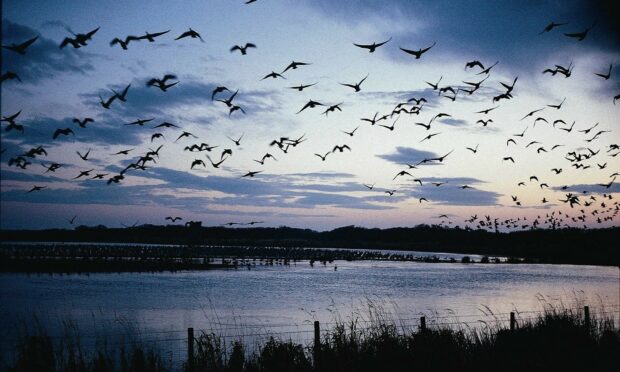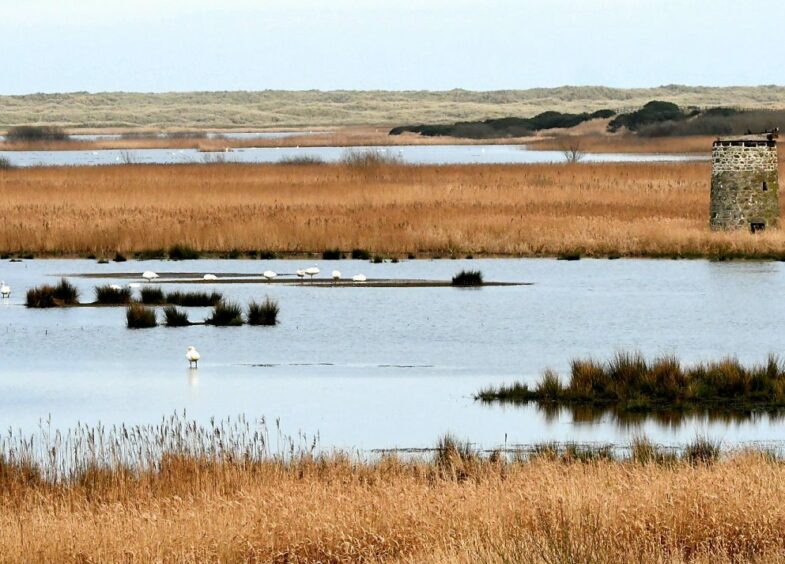RSPB Scotland has been awarded £47,500 to help manage water levels at the Loch of Strathbeg.
The nature reserve near Crimond is Britain’s largest dune loch, and a vital wintering spot for around a fifth of the world’s pink-footed geese population. It is also home to many wetland wildlife.
Now RSPB Scotland has been granted funding to install a new tilting sluice on the Savoch Burn, which is the main feed into the loch.
Loch of Strathbeg site manager Richard Humpidge said: “There has been quite a lot of phosphate entering the loch through this burn and the sluice will enable us to control water flow better to reduce this.
“Excess phosphate affects the water, meaning it isn’t suitable for some of the wildlife that live in and around the loch. Because of the reduced water flow we will also install a solar-powered pump to keep our adjacent wetlands nice and wet, perfect for species such as pink-footed geese.
“I have been working on this project since about 2014 so it is really nice seeing it coming to fruition. This will benefit all the thousands of wintering ducks and swans as well as improving habitat for breeding waders.”
Project is one of 46 to benefit from funding
The funding has come from the Scottish Government’s annual Nature Restoration Fund, which is managed by NatureScot, to protect the country’s species, woodlands, rivers and seas, as well as improving the health and wellbeing of local communities.
Loch of Strathbeg’s funding is one of 46 projects to benefit from a share of £5 million in this round of funding.
Biodiversity Minister Lorna Slater said: “These diverse, innovative projects are already bringing benefits across the country – not only to the environment, but also to the health and wellbeing of local communities.
“The Nature Restoration Fund is just one of the ways we are demonstrating our commitment to tackling biodiversity loss and restoring nature for future generations. Later this year we will publish an ambitious new biodiversity strategy which aims to halt biodiversity loss by 2030 and reverse it by 2045.”
Chief executive of NatureScot Francesca Osowska said: “We are all now more aware than ever before of the urgency of the climate change emergency. But there is hope. By restoring nature, protecting and enhancing habitats and safeguarding marine life, we can secure a better future for nature and for ourselves.”


Conversation